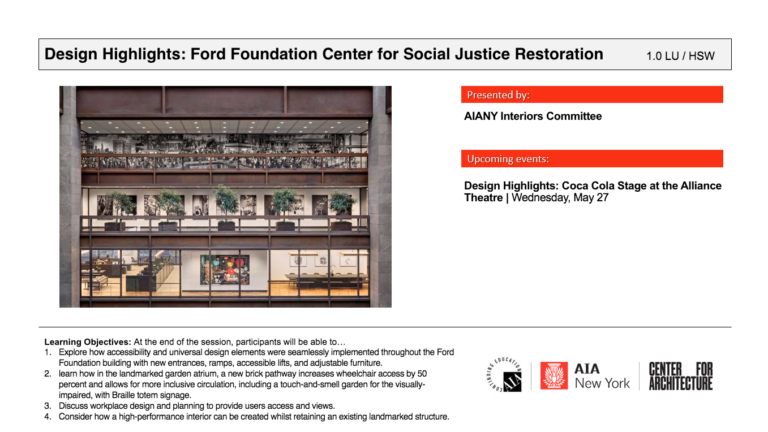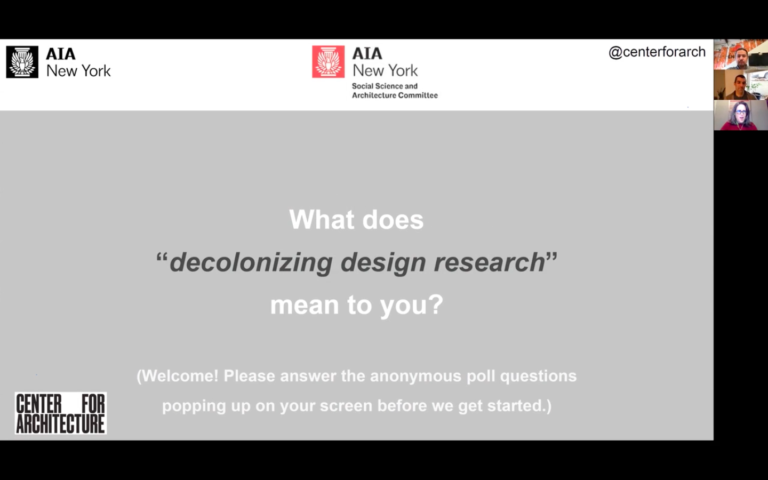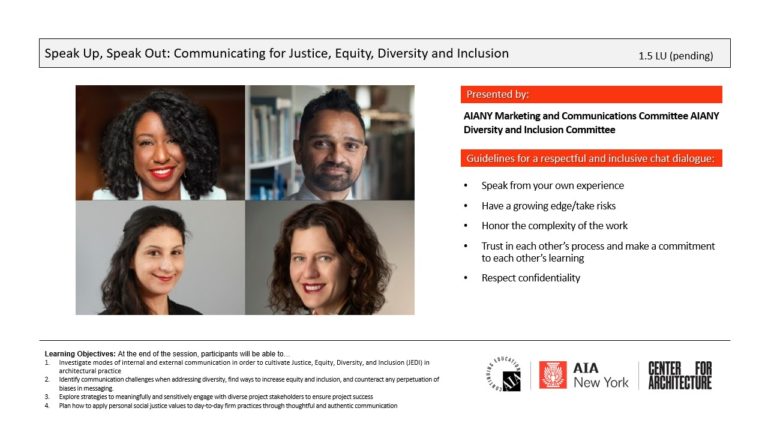Social (In)Justice and Spatial Practice: Architecture & the Cultural Institution is a series of panel discussions that investigates the cultural institution’s role in social justice as it relates to architecture, design, and urbanism.
The past few years have been a turning point in American society, as the endemic social injustice embedded in our society has finally reached a widespread urgency within American consciousness. As part of an effort to rethink and reform public civic life, many cultural institutions have been working to combat their historic complacency and restructure their organizations to respond to social inequity and how to better foster a just society. While other organizations have had social justice as a part of their mission from early on.
This series looks not only at the ongoing restructuring of our society, but how spatial practice, architecture, and design can contribute to this change. The series looks towards institutions that are instigating reforms as well as those that have been consistent in their embrace of social equity and what the impact of these histories has on the design of their institutions and the meaning of place. Each evening in the series will feature two leaders in the arts, one from a visual arts organization and one from a performing arts organization to discuss the role of the cultural institution. Each session will include a fifteen minute presentation by each guest followed by an open discussion facilitated and moderated by Duman and Zuspan.
The first in the series, The Institution and Gentrification, will feature Sade Lythcott, the Chief Executive Officer of National Black Theatre (NBT) in Harlem, and Elena Ketelsen González, Assistant Curator at MoMA PS1 in Long Island City. The evening will discuss these two important NYC institutions, their historic relationships to their neighborhoods, the complexities of gentrification, and the future of the cultural institution.
Speakers:
Elena Ketelsen González, Assistant Curator, MoMA PS1
Sade Lythcott, Chief Executive Officer, National Black Theater (NBT)
Moderators:
Koray Duman, AIA, Principal, B-KD
Peter Zuspan, AIA, Principal, Bureau V Architecture (BVA)


